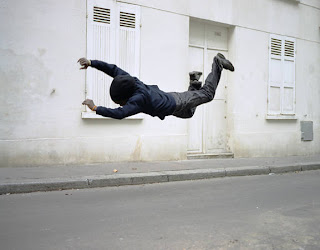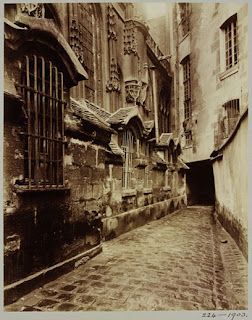En la tarde, dos agentes lo acompañaron hasta la silla de un avión de Avianca y antes de despegar le entregaron su pasaporte con el sello: 'Deportado'. Llegó al Eldorado y en inmigración del DAS le preguntaron qué había pasado y él contó su historia. Entonces, el agente le puso el sello de ingreso y le dijo: "Bienvenido a su país".As an experiment in empathy, an interesting story-telling approach. El Tiempo's comment page lit up with approval for finally telling it from the deportee's perspective, and other, similar stories started pouring in. Commenters discuss just how hard it is to get set up here, whether it's worth it, who to avoid (lawyers, mostly). There's an interestingly skewed view of fairness in all this, worth checking out.
That afternoon, two agents accompanied him to his seat on an Avianca flight, and before take-off, gave him his passport stamped "Deported." He arrived at Eldorado airport and at the immigration counter was asked what had happened. He told his story. Then, the agent stamped his entry and said, "Welcome to your country."
Home » news
Saturday, February 10, 2007
What is it like to be deported?
El Tiempo narrates the deportation of a Colombian who had lived in Miami for seven years. But it's just a straight chronicle of events, names changed, no analysis, just the one statistic indicating at least 1,742 Colombian deportees last year and nearly 190,000 total deportations (some completed from previous pending cases) to all countries last year in America.
Friday, February 9, 2007
Off the ground

a street dancer in Paris, by Denis Darzacq
Winner this year, but strangely in the arts and entertainment category, of the World Press Photo for his portfolio called "la chute," or The Fall, Denis Darzacq has turned the uglier Paris into an aquarium of wonder. If it is an arts story, it's a powerful allegory of life on the French fringe. These photos were taken following the well-publicized riots in November of 2005. An appropriate commentary track is from La Haine, Matthieu Kassovitz's 1995 portrait of the Parisian suburbs that practically predicted the unrest ten years later. One of the young misfits in the film tells an allegory (while watching the lights go off the Eiffel Tower from a distant roof) of a man jumping off a building, and on his way down repeating, "jusqu'ici, tout va bien," -- so far, so good. Of course it's the landing that counts.
In the landscape of these photos, I get an echo of Atget...

(Eugène Atget, 'Church of St Gervais, Paris', about 1900: Victoria & Albert)
A sense of time far removed from Hockney's collages...

(David Hockney, 'Scrabble, Hollywood, 1 January 1983', V&A)
And the grace of athleticism at its best. Compare the link to Darzacq's work below:

Tuesday, February 6, 2007
6 x 6, from wall to wall
The Bellevue/NYU Program for Survivors of Torture is one of those hidden international gathering places in New York, oddly cosmpolitain, painfully connected to world realities. Dr. Allen S. Keller has run the program since its inception, and was profiled by Jan Hoffman of the Times in 2003. Tina Rosenberg, who has written extensively on the effects of violence on people in developing countries, wrote a portrait of the center's work in 1997, again for the Times, which has covered the treatment of refugees in New York with some care.
But it's a story that continues to evolve, as the clinic adapts to, sadly, new forms of torture, new waves of arrivals (almost all the referrals, one of the pyschiatrists there told me, come through word-of-mouth in the refugee community), and new conditions here in New York. Language access laws and services have changed doctor-patient interactions, not always for the better. (The same psychiatrist describes the way patients all of a sudden feel cultural stigma once a native translator enters the room, for example.) Mexicans with kitchen jobs, who come in for a quick treatment for a cough, sometimes find themselves quaratined in the TB wing, knowing that a day lost on the job is a job lost. There are still challenges to explore. More as I get better access to the hospital.
But it's a story that continues to evolve, as the clinic adapts to, sadly, new forms of torture, new waves of arrivals (almost all the referrals, one of the pyschiatrists there told me, come through word-of-mouth in the refugee community), and new conditions here in New York. Language access laws and services have changed doctor-patient interactions, not always for the better. (The same psychiatrist describes the way patients all of a sudden feel cultural stigma once a native translator enters the room, for example.) Mexicans with kitchen jobs, who come in for a quick treatment for a cough, sometimes find themselves quaratined in the TB wing, knowing that a day lost on the job is a job lost. There are still challenges to explore. More as I get better access to the hospital.
Subscribe to:
Comments (Atom)



